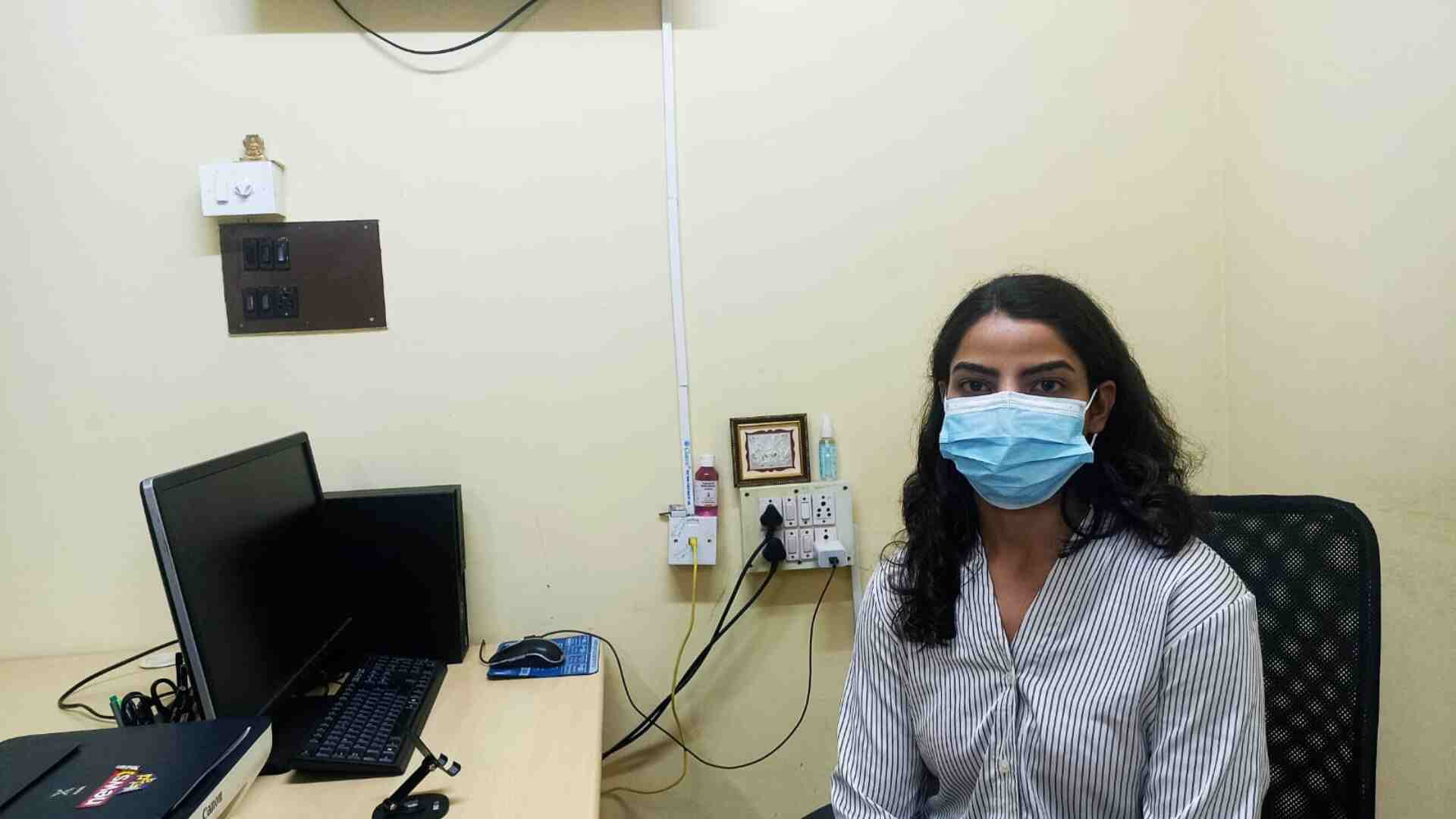
Bengaluru, Dec 3: Twenty-six-year-old Sheetal Gupta never thought in her wildest dreams that an unsuspecting phone call on a relaxing Sunday afternoon would turn disastrous – duping her off Rs 25.5 lakh – her hard-earned savings over the past three years ever since she started her career as a software engineer – working with a reputed IT firm in Bengaluru. Being a native of Uttar Pradesh, career oriented and pursuing her dreams of becoming a successful techie and an independent entrepreneur, she had already planned her future – carefully saving her every-month salary wisely investing in shares and mutual funds.
She was well aware of the cybercrimes such as the Fed-Ex scams and would just disconnect random calls after they claimed that there was a parcel in her name that had drugs and foreign currencies in it. However, an IVR call she received on November 24th afternoon was unlike that. It was automated call from the Telecom Regulatory Authority of India (TRAI) that informed her that her phone number and her Aadhar card was being misused and for that she had to contact the Delhi Cybercrime wing and lodge a complaint. The automated call demanded her to press 1 for further updates.
As soon as Sheetal pressed one, the call was transferred to a person who claimed he was from the Delhi Cybercrime and he informed her that her phone number and Aadhar card was being used to open a bank account from which illegal transactions of around Rs 68 lakhs were carried out related to a criminal offence of kidnapping of 17 children – one of the children was dead and her organs were trafficked to other countries. Sheetal was shell-shocked to hear all these which she kind of digested and got convinced when the caller told her Aadhar card number which according to Sheetal no one knew. Sheetal was also informed that the case was being investigated by the Central Bureau of Investigation (CBI) officials too along with the Cybercrime cell in the national capital.
It was then a WhatsApp video call from another caller who identified himself as a police inspector Sunil Tiwari who was dressed up in his uniform – video frame of him – between the national flag and the police flag that sat on a table started to interrogate her. Tiwari somehow managed to convince Sheetal that she was one of the suspects and accused and was being dragged into a criminal case of abduction of 17 children and informed that she had two options – One – the police team from Delhi would land up at her doorsteps in Bengaluru arrest her and take her to the Connaught Palace police station where she would be in police custody for not less than 3 months and Option-2 was that Sheetal has to be under digital surveillance all the time until the officials – both the Cybercrime cell and the CBI clear her off from all the charges. This they kept telling Sheetal repeatedly while they hinted that she looked innocent and that she had been framed in this case as her phone number and Aadhar were misused.
Sheetal had no choice that to go for Option-2 and opined that she was ready for the digital surveillance which she was told that would last for a couple of days. The terms and conditions of the digital surveillance were that she had to keep her WhatsApp video call on for all the time in a locked room – even while she was sleeping. She was instructed not to talk to anyone including her family members or friends and was also told to write a detailed letter to the CBI that there was no fault of her in this case and it was only that her phone number and Aadhar card number were misused. She was also sent a confidentiality agreement with the CBI letterhead which stated that she was in acceptance and consenting for her digital surveillance. “They (cybercriminals) spoke to me in a commanding tone as if policemen would talk to suspects and accused and their conversations mostly were like that they (cybercriminals) were trying to help me come out of this case,” Sheetal told TSG.
Two days passed by – of her digital surveillance as Sheetal had requested her office to work from home and by the time, the impersonating cybercrooks had taken almost all information about her both personally and professionally. It was on the third and fourth day they started inquiring about her finances when Sheetal told her that she hardly had any money in her savings bank account. They then inquired about her investments in shares and mutual funds where Sheetal unsuspectingly gave away details about her savings. The scamsters then sent Sheetal an RBI notice which stated that she had to declare all of her financial holdings for investigation purpose and the scamsters while on video call asked her read it out to them aloud. The notice stated that she had to transfer all her finances to a bank account held by the CBI and soon after the investigation is over, the money would be transferred back into her account. They also managed to convince Sheetal that the losses that she incur while breaking her mutual funds would be compensated later by the government when her money would be transferred back into her account.
Sheetal then started working on liquidating her investments like that of her shares and mutual funds. “The money of the shares came into my bank account within a day, but the liquidation of the mutual funds took a couple of days and a total amount of Rs 25.5 lakh had come to my bank account on the fourth day of the digital surveillance,” Sheetal told TDG. As instructed, Sheetal informed her caller that the money has been credited into her bank account. “I was directed by the so-called police officer that I had to go to the bank in person – act confident and initiate an RTGS transfer of my money into a beneficiary account, the details of which would be sent to me later while I reach the bank,” Sheetal told TDG. Sheetal was also asked to be prepared with answers if the bank staff inquires why she was transferring a huge amount, she had to tell them that it was for a real estate deal.
The bank initiated the RTGS transfer Sheetal’s Rs 25.5 lakh had gone to the beneficiary account that the scamsters had sent to her while she was at the bank. The so-called police officers on call applauded her for her cooperation and even told her that she would receive awards from the CBI as she was cooperating very well with the investigation. They still kept Sheetal on video call engaging with her that the CBI will look into her finances, clear it and would send back the money the very next day.
Later on, Sheetal received a call from the scamster stating that she had sent only Rs 25.5 lakh instead of Rs 68 lakh which was the ransom money of the kidnapping case that was transacted through her bank account. Shocked, Sheetal said that she had the savings of only Rs 25 lakh and not a penny more she has with her. The scamsters then started asking about her family members if they would help her with the rest of the money so that she can come out of the case clean. It was now when Sheetal realised that she had been conned and argued back with the caller stating where does the confidentiality agreement stand if she had to ask for money from her parents to come out of the case.
She then narrated her ordeal to one of her close colleagues at her workplace who informed her that she had been duped by cyber criminals. Sheetal then informed her sister about all the developments and both of them approached the Bengaluru cybercrime police and lodged a complaint. Even while, Sheetal was at the police station, the scamster was on WhatsApp call with Sheetal and he insisted on knowing about her whereabouts. He was repeatedly asking if she had gone to the police station and when Sheetal asked her switch on his video camera, he would not.
Based on a complaint filed by Sheetal, the Bengaluru cybercrime police registered an FIR and investigations are underway. Preliminary investigations revealed that Rs 25.5 lakh that was transferred from Sheetal’s bank account to the scamster’s beneficiary bank account was further gone to six other bank accounts. “If the victims approach us within the golden hour soon after they realise that they are duped after they sent money to the cybercriminals, there are chances that our officials would get in touch with the RBI officials and within a matter of time freeze the beneficiary account, but usually cybercriminals keep their victims engaged with the same tactics of being on call with them so that they get time to transfer the money from that bank account to other bank accounts,” Hazeresh Killedar, a police inspector with the Cyber Crime police station in Bengaluru told TDG.















